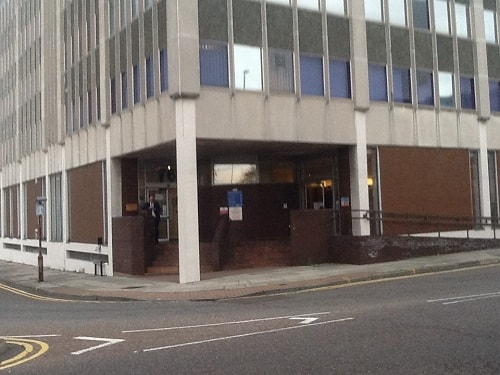| Presentation |
Discussion and Comment |
| 1. What Services are charged for ? |
|
| MF explained the three types of charges. These are (a) for people who live in residential or nursing homes, (b) for people who are helped to live at home, and (c) for meals-on-wheels. |
Noted |
| The remit of this consultation is (b) and (c). Charges for residential and nursing care are set by Government and cannot be influenced locally. |
Noted |
| MF explained charges for people who are helped to live at home are based on Government guidance ‘Fairer Charging’ which assesses people’s ability to pay (based on their income, benefits and savings) |
It was noted that Councils do not have to charge, but if they do they must adhere to the principles within this Guidance. |
| People who receive meals delivered to their homes were charged £1.60 per meal. No account is taken of their ability to pay. |
In response to a question raised by Councillors, MF confirmed this price had not been changed since December 2000, and if inflation had been applied each year the charge would now be £1.81. |
| 2. How are charges worked out? |
|
| MF went through the steps to calculate charges for people supported with a community care package and identified the three bases of charges. These were:- |
Noted |
| (a) Charges against disposable income.This is currently 27%. Disposable Income is the amount above the minimum the Government believes is necessary to live on (ie Income Support levels). |
MF confirmed that (i) people whose only source of income was Income Support were not charged, (ii) carers income was not taken into account, and (iii) Mobility Allowance was not included as income. |
| (b) Charges against benefits.Currently £5.27 per week for people who receive Disability Allowance (DLA), or £7.27 for higher DLA |
The group asked for information on the current levels of this Allowance. HG responded £40.55 per week for Medium DLA, and £60.60 per week for higher DLA. Over 80% of claimants receive the Medium level. |
| (c) charges against savings.Currently £1 per week for every £250 above £12,500. People with more than £20,500 are assessed to pay the full cost of their care |
MF clarified the £1 was the assumed income from savings to be added to Disposable income in 2(a) above. The Group asked who set these levels and MF responded they are in the guidance but Council’s were free to set higher figures (not lower). |
| 3. Why does the Council think the policy should be reviewed? |
|
| MF summarised the ‘Fairer Charging policy, the main principles are:-(a) Charges should take account of people’s ability to pay
(b) Charges should be equally applied across all client groups |
It was acknowledged the current policy does this in accordance with the Fairer Charging Guidance.MF reported there were some groups, and service types, not being charged in the same way. These were (1) Adults with Learning Disability who attend Day Centres, and (2) Adult living in Supported Living services – previously classed as residential care.The Group felt this was unfair, and that everyone should be assessed in the same way, although it was noted the group most affected were not represented at this event. |
| MF reported the existing policy had not been changed for 5 years |
Noted |
| The Council agreed budget savings in 2005-06 of £150,000 from Fairer Charges and £50,000 from Meals |
Noted |
| 4. Options |
|
| MF summarised the options that could be considered by the Council. These are:-(a) Charge more for people with over £20,500 savings (ie raising the full price)
(b) Charge more against disposable income
(c) Charge more against Disability related Benefits
(d) Increase the price of Meals on Wheels
(e) Include people who only receive Day Care or Supported Living Services in the charging policy |
There was concern that people just over the limit would have their savings reduced rapidly. MF confirmed the Council ‘could’ raise the threshold for being assessed to pay the full price.The Council could either change the %-Take figure or increase the minimum level before charges start to apply (eg Income Support + £10)
The Council could change the charge against Disability benefits. Few Councils take all the Benefit in charges, many take between £10 and £15 per week.
The Council can charge up to the full price for meals (currently £2.42)
Most Councils operate the same Fairer Charging policy for these type of services |
| 5. Exploring each option in turn -> |
|
(a) Charge people with over £20,500 more.
The current policy is to charge £6.14 per hour. The actual cost to the Council is between £9 and £11. If the Council raised its charge to £7.14 an additional £75,000 would be raised. |
The Group asked how many people this would affect, MF reported approximately 500 people (there are actually 540 people paying on average £27 per week, which raises £750,000 pa)The Group felt it would be fair to charge people more who were more able to pay because they had more assets, but were concerned people who were just over the threshold would quickly drop below it. There was also concern people would divest themselves of their savings purposefully to avoid paying charges.
MF explained there were few people who were ‘just over’. Most people paying the full price had elected not to reveal the level of their savings and had ‘chosen’ to pay full cost.
The group would like to ask the Council to consider raising the £20,500 threshold to protect those who were ‘just over’ the limit. On this basis, people with more substantial savings would be more likely to accept higher charges; bearing in mind the subsidy that would still remain. |
| (b)Charge more against disposable incomeThe current policy is to charge 27% of disposable income. MF explained that for every ‘percentage point’ above this the Council would raise an additional £10,000 (eg if the charge was 30%, £30,000 would be generated. |
MF confirmed there would be 1,200 service users affected by varying the %-Take figure.Many other Authorities charge between 30% and 35%. |
| (c) Charge more against Disability related BenefitsPeople who get DLA/AA are charged £5.27 per week at the lower level or £7.27 at the higher.
Raising the charges by £1 per week would generate an additional £94,000 per year. |
The Group felt it fair that people should use these benefits to pay for their care as this was the purpose of the benefit. |
| (d) Increase the price of Meals on WheelsThe current price per meal is £1.60. The average in the North West is £1.85. The price had not changed in 5 years. Raising it to £1.85 would raise an additional £30,000. |
The Group asked what the actual price of each meal was. MF responded £2.42 taking into account the cost of the meal, regeneration, and transport.The Group still felt at £1.85 it was good value for a two course meal |
(e) Charge people in Supported LivingMany people are not charged for Supported Living
Services. Applying the Fairer Charging Policy would raise £40,000 per year |
The Group felt people receiving these services should be assessed to pay charges in the same way as other service users. MF reported up to 80 people would be affected.The other group not currently charged is Adults with Learning Disability who only receive day care. Up to 100 users may be affected and MF reported potential collection difficulties. |
| MF asked the Group to comment on the current method of payment.Users currently receive a statement against which they can make regular payments using a swipe card |
The group felt the statements were a good idea but felt regular monthly invoices would be an improvementThe group also felt more use of standing orders and direct debits would aid collection (this needs to be offered as a choice)
The Group asked MF to consider ‘rewards’ for opting for Direct Debits similar to those offered by utility Companies |
| Summary of messages from the Group to CommitteeMF asked the Group what comments they would wish to make to the next Committee |
- ‘Fairness’ was considered to be the key consideration.
- Benefits that were paid for people with disability should be used to pay charges.
- Avoid putting people into poverty by charging against low incomes.
- People with higher income and savings should be assessed to pay more.
- £1.85 is good value for a hot two course meal delivered to your own home
- The savings threshold should be increased to avoid people fluctuating between full cost and assessed charge when they have around £20,500.
- All client groups and service types should be charged in the same way.
|

